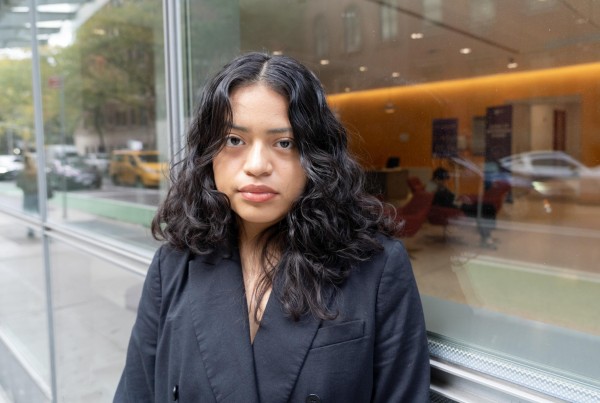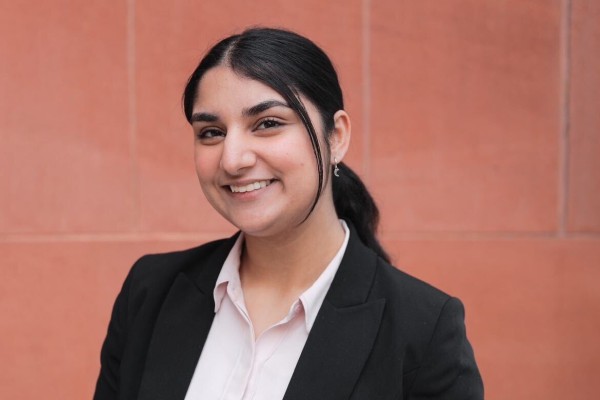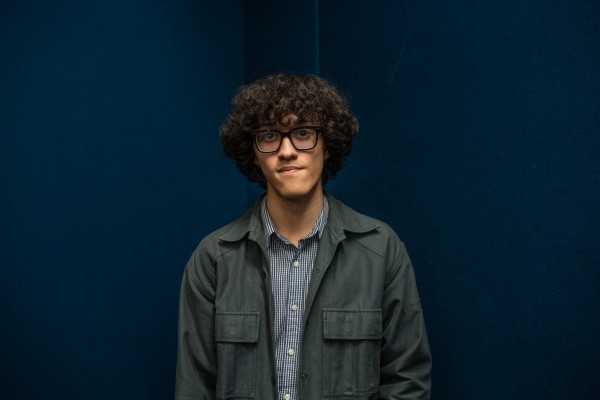The United States has reportedly seen record-breaking climate disasters in the last year, with the National Centers for Environmental Information reporting 25 confirmed weather or climate-related events as of Dec. 8, including a drought, two floods, 19 severe storms and more than $1 billion in damages. In the face of rising concerns over climate change across the country, NYU students have taken the initiative to help advance public engagement by applying their fields of study to climate activism.
According to a study published in the journal Nature Climate Change, approaching climate justice with “deep interdisciplinarity,” or bridging natural and social sciences with humanities, is an effective way to enact long-term action and create new solutions to climate change that address people’s lived experiences. This can look like having meaningful public engagement, employing various academic methods and enlisting local movements to address global processes.
NYU’s various options of study make a fertile ground for this multifaceted approach to climate justice, and for leveraging the creativity that emerges from the intersections between various fields of study. These three students drew from their diverse experiences in politics, technology, media, art, business and environmental science to promote change on campus and beyond.
Tania Soriano: From rural Mexico to college activism

Tania Soriano, a sophomore at Gallatin studying sustainable management and development, is the head of communications at the on-campus student organization Sunrise Movement NYU, which recently made strides in its yearslong efforts to get NYU to reaffirm its commitment to fossil fuel investment in September. Sunrise NYU is a chapter of a larger national movement with over 100 hubs across the country that aim to combat the current climate crisis.
Soriano’s family background in agriculture provided an important perspective on how environmental issues strike rural communities the hardest. Visiting her family’s rural farms in Puebla, Mexico, Soriano heard her grandmother talk about how such extended droughts and dry spells were unheard of 30 years ago, and how she saw these effects in local farmers’ poor harvesting.
In high school, Soriano joined her school’s environmental club, inspired by Mexican climate activist Xiye Bastida. The growing passion for environmentalism led her to NYU, where she eventually joined Sunrise NYU.
“This was the kind of place where I wanted to put my energy into because I knew that I would get a direct outcome,” Soriano said. “It’s not like planting seeds in a garden. It’s more systemic.”
Soriano, alongside her colleagues at Sunrise NYU, aims to expand her reach and engage more students campus-wide. This semester, Soriano and her team attended the 2023 College Climate Gathering at Brown University, where over 160 students discussed the future of college activism.
“Activism is a very intensive job because you constantly have to do research, make sure you know your facts and have connections with the right people,” Soriano said. “It’s very time-intensive, but we try to just make it as fun as possible and to form genuine relationships with one another.”
Soriano said she encourages interested individuals to reach out, and that the group has a “big and little” system that pairs new members with a student on the leadership team. Currently, Sunrise NYU is focused on a campaign to democratize the university’s Board of Trustees by adding more student voices to leadership and encouraging others to join the group.
“Through collective action, you can genuinely form a foundation where you’re all unified for one purpose,” Soriano said. “It’s definitely revitalizing and I use that as a source of energy.”
Kriti Kaushal: Driving impact from within

For Stern sophomore Kriti Kaushal, who studies finance and management, her goal was to make some sort of impact on environmental activism. Kaushal, who is also the Community Co-Director at the student-led group NYU Net Impact, believes ideas pertaining to climate justice become action when sustainability is incorporated across various disciplines over time.
“For example, take a streaming platform that offers extensive content on the history of environmental movements, whose primary goal is to appeal to young audiences — there is an interesting value proposition here,” Kaushal said.
Kaushal noted that while enacting change is a dialectical process, there’s an increasing reluctance to engage in topics relating to environmentalism. She said quasi-derogatory labels like “tree-hugger” or “greenie” have spawned as denominations of being an “environmentalist.” Kaushal added that the climate doomsday clock in Union Square doesn’t inspire much optimism.
“Politics has stigmatized talk about climate change,” Kaushal said. “If even the conversations have become taboo, we will become complacent with not talking.”
For Kaushal, it is important to raise awareness about the value of sustainability. However, she said that action must be taken in order to truly align with that objective. On a personal level, Kaushal’s commitment to sustainability means shorter showers, reusable utensils and other lifestyle changes.
To those aspiring to venture into sustainable business, Kaushal encouraged getting involved in business and societal programs. She also cited on-campus clubs and organizations, including Sunrise NYU, that she said are beneficial for students interested in climate justice to surround themselves with.
“They matter because you’re not only doing it to reduce your own impact, but inspiring others around you,” Kaushal said. “A person’s impact will never be zero — it’s about controlling what is in your capacity to do so.”
Saha Guerrero: Using social media as a catalyst for change

CAS junior Saha Guerrero, who studies public policy, is deeply involved in the fight against social and environmental injustices in New York City. While working for the High Schoolers for Biden campaign at the age of 16, Guerrero educated himself on injustices in marginalized communities at both the local and federal level.
“It’s very personal for me,” Guerrero said. “All politics is local, and all politics is personal.”
Guerrero’s commitment to public service is influenced by his desire to support underrepresented communities affected by water and food insecurity as a result of climate change. This objective is reflected in his involvement with the youth-led nonprofit, the Young Lordes Collective, where he serves as the social media director. Being an artist-activist nonprofit, the YLC utilizes social media as a means of storytelling to document the histories of minority communities in the city.
“Our work extends beyond just climate and really tackles the core issues that New Yorkers are facing,” Guerrero said. “The heart of our activism and our work and my work is giving back to New Yorkers, the communities that have shaped me.”
Guerrero is an ardent believer in the power of social media for activism, seeing it as a platform to raise awareness about critical environmental events. Though progress can be slow, he remains patient, hopeful and open-minded towards achieving real change.
“It’s really hard to enact change, so you have to go piece by piece,” Guerrero said. “Being at a place like NYU, it’s a matter of talking with people, even if I disagree with them, to find that common ground.”
Contact Polina Belova and Teresa Mo at [email protected].
























































































































































